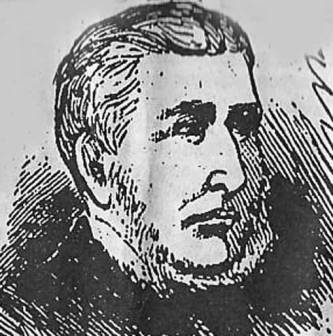
James Randall had bought a packet of what he believed to be tobacco from someone, possibly a dock worker, at one of the many pubs in and around the City of London. The vendor had torn open the package just enough to allow him to test a sample of the tobacco, and he had handed over 2s for it. Later he discovered that instead a pound and a half of ‘baccy, all he had was a worthless mix of ‘sawdust and horsedung’.
The sailor had been ‘done’ but instead of accepting his bad luck he decided he would try to recover the situation. Later that day he was walking in the Minories in the City, close to its eastern edge, when he encountered a young lad named Thomas Watts. He offered him the parcel of ‘tobacco’ for 2s3d hoping to make a small profit from the deal.
Watts, a ‘respectable’ youth, was unsure, and said no. Randall immediately dropped the price to 1s 9d, but Thomas still wavered. The sailor went to 1s 6d and Watts caved in. He handed over the money and was about to examine his purchase when a policeman ran up to the pair of them.
PC Hayton (588 City) had watched the transaction and knew Randall as a suspicious individual. He took the parcel and the plug sample of tobacco fell out soon followed by the worthless mixture of sawdust and manure. The copper quickly established that the boy had been ripped off and instructed Randall to give him his money back. He demurred at first but then complied. As Watts thanked the policeman the seaman took his chance and ran off.
The officer chased him across the City and caught up with him in Finsbury Circus where he arrested him. On the way to the station Randall confessed to knowing his parcel was valueless and so to trying to defraud Thomas. Not surprisingly then when he was produced at the Mansion House Police court Sir Robert Carden committed him for trial.
Randall was tried at the Old Bailey on the 22 October 1855 and found guilty on his own confession, he was 25 years of age. The judge sent him to prison for three months.
[from Reynolds’s Newspaper, Sunday, September 30, 1855]







